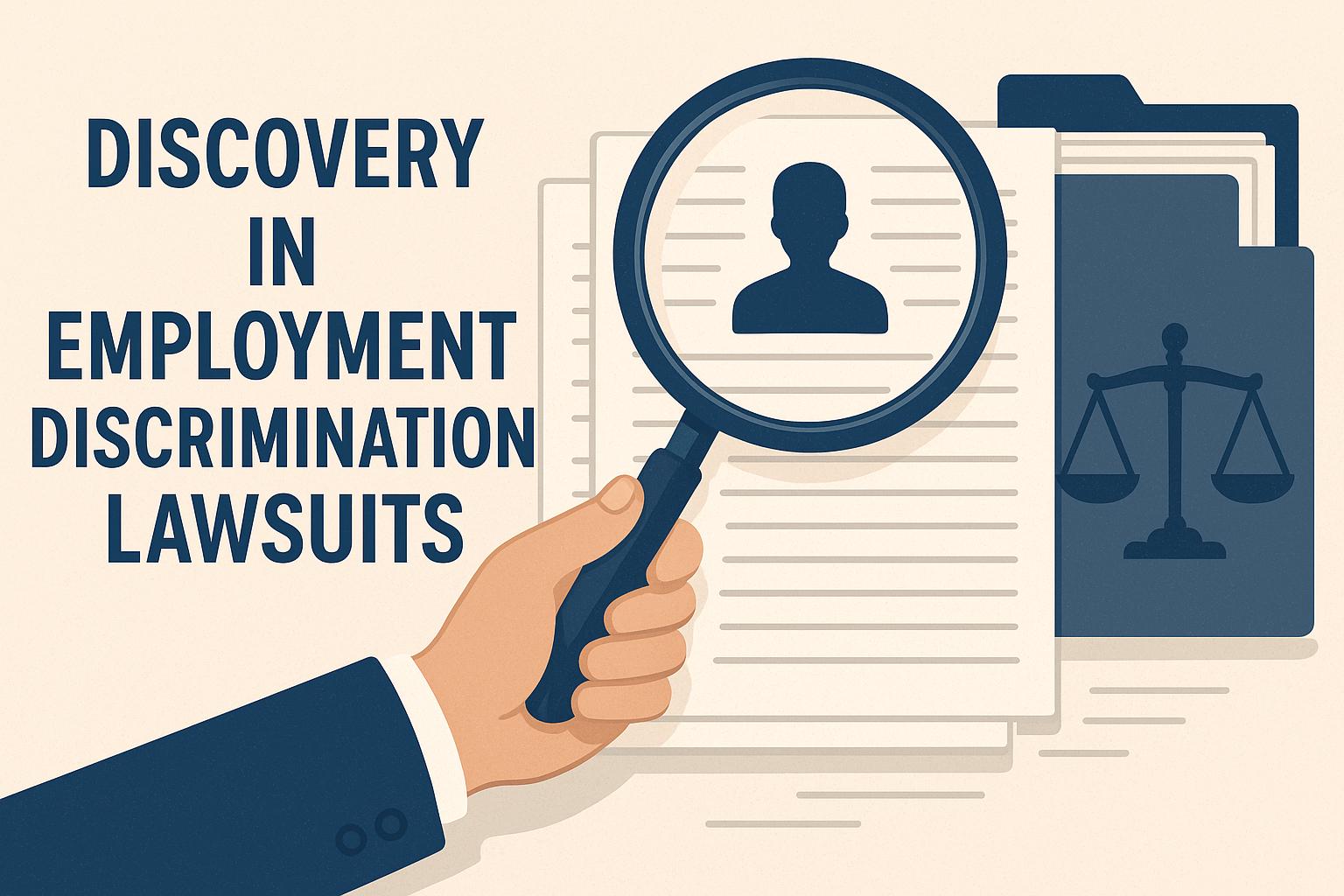Understanding Discovery in Employment Discrimination Lawsuits
In the realm of employment discrimination lawsuits, discovery is a crucial phase that significantly influences the direction and potential outcome of a case. Within this legal framework, discovery refers to the pre-trial process where both parties—plaintiffs and defendants—exchange information and collect evidence that is pertinent to the claims at hand. This procedural mechanism is vital for both parties, as it assists in uncovering essential facts and substantiating evidence, thereby shaping the courtroom strategy and decision-making.
Purpose of Discovery
The primary objective of discovery in employment discrimination lawsuits is multi-faceted. First and foremost, it aims to avert unexpected developments during the trial, thus enabling both parties to meticulously prepare their cases. Discovery furnishes the litigants with the ability to procure evidence that could either bolster or undermine claims and defenses. Importantly, this phase offers each party the chance to appraise the robustness of the opponent’s case, often prompting settlements if the evidence heavily favors one party. Additionally, thorough discovery ensures that the trial process is based on comprehensive knowledge and understanding, thereby fostering an equitable resolution.
Main Methods of Discovery
Discovery generally encompasses several principal methods, each designed to achieve a specific purpose in gathering information critical to the case.
Interrogatories are a form of discovery involving written questions that one party issues to the opposing party. The recipient of these questions is legally bound to furnish written responses under oath. Interrogatories are instrumental in collecting foundational information about the case, such as identifying witnesses, outlining employment policies, and detailing pertinent actions or decisions.
Depositions involve oral questioning of a party or witness under oath, frequently conducted in a lawyer’s office setting. They provide a platform for attorneys to garner firsthand testimonies and gauge the demeanor and credibility of witnesses. Depositions serve as a pivotal tool for obtaining in-depth narratives and clarifying factual disputes.
Requests for Production are a method through which one party solicits the opposing party to furnish documents and records pertinent to the case. These requests often target employee files, internal communications, performance evaluations, and other relevant documents that could provide insights into the matter at hand.
Requests for Admission obligate a party to acknowledge or deny particular facts. This method aids in narrowing the issues by establishing undisputed facts, thereby streamlining the areas of contention that require resolution during the trial.
Challenges and Limitations
Despite its integral role, the discovery process is fraught with challenges and limitations. A notable issue is that discovery can be both time-consuming and expensive, potentially leading to conflicts regarding the scope and relevance of requested information. In such instances, courts often intervene to adjudicate these disputes, striving to strike a balance between thorough information collection and shielding parties from undue burden or intrusion.
Moreover, employment discrimination lawsuits frequently involve sensitive data, including private employee records and personal information. To address these concerns, courts often impose confidentiality agreements or protective orders to safeguard sensitive information, ensuring it is not misused outside the proceedings.
Balancing Comprehensive Discovery with Privacy
An additional layer of complexity within discovery processes is the need to balance comprehensive discovery with privacy concerns. Employment discrimination cases often touch upon sensitive issues and confidential employee data. Ensuring fair access to necessary information while protecting individual privacy necessitates careful oversight and, often, judicial intervention to establish the boundaries of permissible discovery.
Impact on Case Outcomes
The efficacy of the discovery process can decisively impact the outcome of employment discrimination lawsuits. Access to persuasive evidence may enhance a party’s position, potentially resulting in favorable settlements or leading to case dismissals. Conversely, the inability to uncover or provide critical evidence can undermine a party’s claims or defenses.
The discovery phase also includes the potential for filing summary judgment motions. A summary judgment motion can be pursued when there is no genuine dispute of material fact, requesting the court to resolve the case or specific issues based solely on the evidence presented during discovery, without necessitating a trial.
Facilitating Settlements Through Discovery
Through comprehensive discovery processes, parties often reach settlements prior to trial. By clarifying issues and evaluating the strength of the evidence, parties are frequently motivated to negotiate resolutions that forestall the need for a trial. This can lead to more efficient case resolution and allow parties to have greater control over the outcome than they might achieve at trial.
Conclusion
Discovery is an indispensable element of employment discrimination lawsuits, offering a structured and systematic approach to gathering and scrutinizing evidence. By granting both parties access to crucial information, discovery facilitates a fair, informed, and efficient legal process. Ultimately, it significantly contributes to the just and equitable resolution of employment discrimination claims, ensuring that decisions are made based on substantive evidence and comprehensive understanding. This rigorous approach not only bolsters the integrity of the legal system but also enhances the likelihood of achieving outcomes that reflect the true merits of each case.
